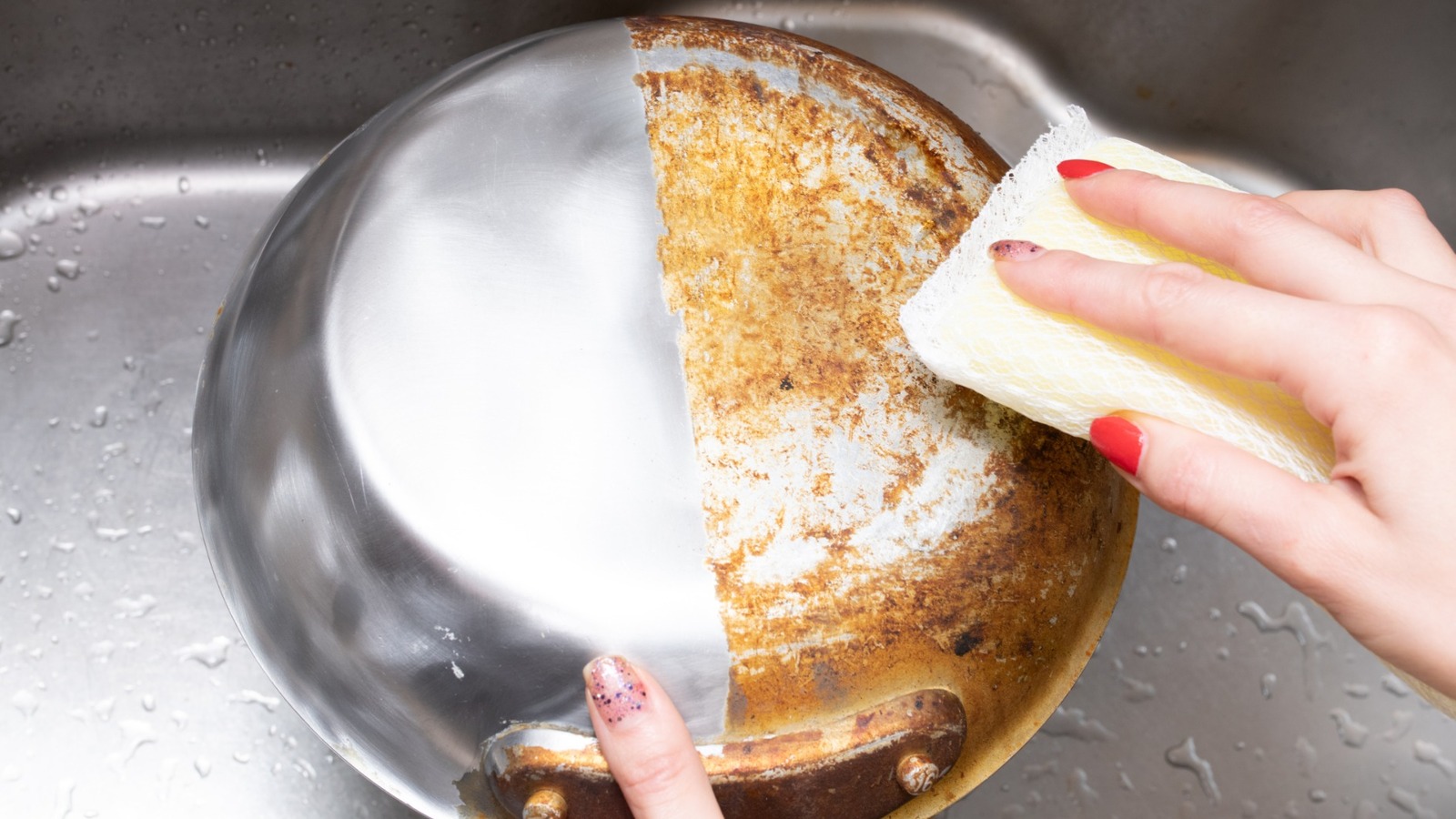
"If you spend enough time in any kitchen, you will see the grim fate of many pots and pans. A baked-on black coating builds up over time until you can barely tell if the pan was stainless steel, nonstick, or enamel. You can still wash it to the point that it's clean and usable, but that carbon buildup is almost impossible to remove with traditional cleansers and sponges."
"The problem was that the powdered cleanser left residue on the pan even after it had been rinsed. According to the team, residue happens when too much cleaner is used for the size of the pan or when the pan isn't rinsed thoroughly. Ironically, if it's dried on and you can feel it with your fingers, the solution is a little more Bar Keepers Friend Superior Cleaner and Polish."
Bar Keepers Friend uses glass oxide abrasive and oxalic acid with a surfactant to scour baked-on carbon and tough stains from cookware. Overuse or inadequate rinsing can leave a powdery residue on pans after cleaning. Dried residue can be removed by applying a small amount of Bar Keepers Friend, scrubbing gently with a non-scratching sponge or microfiber cloth, and rinsing thoroughly in warm water. Low water pressure can prevent full removal and may require extra scrubbing. Because the product is abrasive and formulated for serious stains, removing residue demands elbow grease and careful rinsing.
Read at Tasting Table
Unable to calculate read time
Collection
[
|
...
]